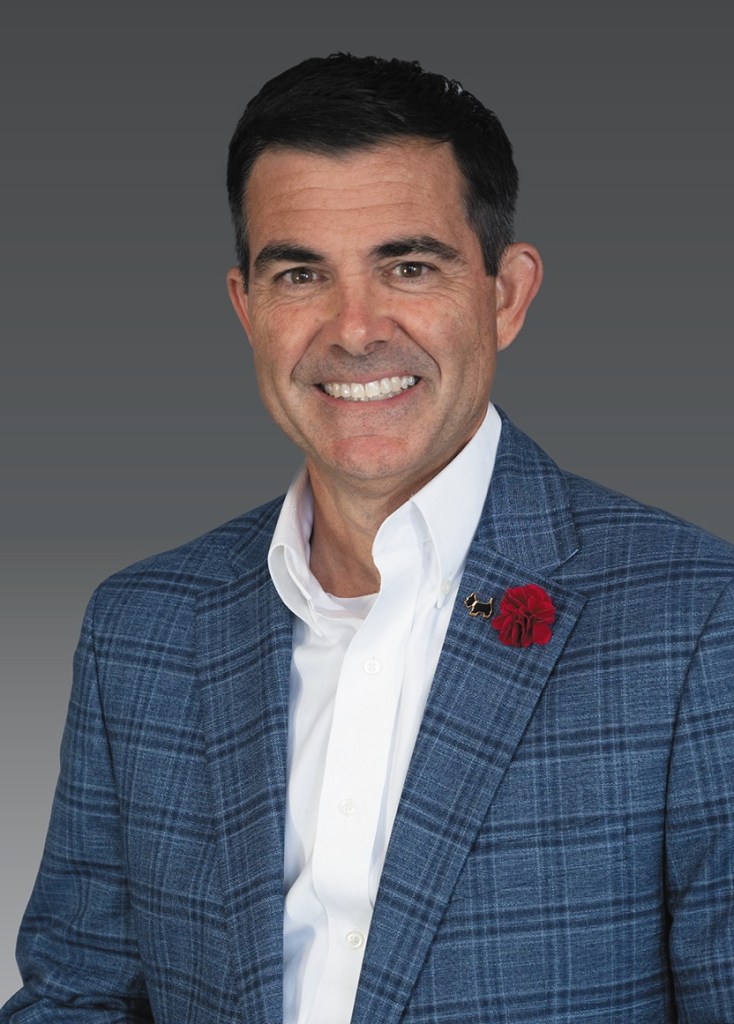Outside Job: How to Plan for Non-Family Succession

By: Peter van Aartrijk
Jim Garner, 63, says the sale of his agency will close in January—13 years after he started planning.
Garner and his two partners learned from the prior owners of Wayah Insurance in Franklin, North Carolina to identify future successors early. “We made it obvious to them that they’re potential owners, and treated them as such,” he says.
Two buyers are producers who have been working at an agency for 10-15 years; the other has been on hand for 10 years and now handles operations. All are in their mid-40s—and none are family members.
“My son works here, but it’s not his turn,” Garner says. “If he’s successful and does what he needs to do, he’ll be in the group that buys the new guys out. But he’s barely 30. People look at me like I’m crazy, but I’ve seen too many agencies have family struggles with people who haven’t carried the mail as they should.”
If 13 years sounds like a long time, that’s because it is—intentionally. A successful perpetuation plan can take a decade to create, especially when no family members are lining up to take the helm. “Preparing for perpetuation may be the most important thing an owner invests in,” warns Mike Strakhov, domain expert with Live Oak Bank.
Failing to plan early will put a smooth succession takeoff at risk, agrees Robert Pettinicchi, executive vice president and chief lending officer of InsurBanc, a division of Connecticut Community Bank, N.A., which serves independent agents nationally. “It’s all about having that runway.”
Finding The One
Succession deals work best when buyers and sellers work together for a while. Stacy Reid joined her Lovington, New Mexico-based agency as a CSR in 1992 and bought it in 2008. “Definitely get someone started five to 10 years prior to your retiring so you can mentor them,” she advises.
Reid spent five years under the wing of the former owner. “I learned every bit of the business,” she says, noting that producers typically learn just insurance. “That was the hardest part for me—figuring out accounting, expenses, agency bill and direct bill. You need to know that upside down and backwards, even if you hire someone else to do it.”
Reid bought the firm in 2008 with a combination of financing from InsurBanc and personal savings. Since then, she says, business has doubled and she looks forward to starting her own perpetuation plan.
“I can’t emphasize enough that this is an execution of a plan versus an opportunistic play,” Strakhov says. “The sooner you have the people identified and acting together, the quicker this will go.”
The significant revenue generators for an agency are typical candidates for a purchase. But top producer skills might not be transferable, says Mary Eisenhart Belka, owner & CEO of Eisenhart Consulting Group, Lincoln, Nebraska.
“Many good producers don’t necessarily have the ability to lead or to run the agency like a real business—especially when the agency hasn’t been run like a real business in the first place,” Eisenhart Belka explains. “You need a very good business-minded CEO.”
Try targeting someone who has worked through four of five years of various cycles in different parts of the organization, and demonstrated they have the outlook of a business owner. “Surrounding yourself with the right people builds the value,” Pettinicchi says. “Talent usually flows to equity.”
Property-casualty producer Jeff Gingerelli and employee benefits specialist Lenny Barone, both 36, recently became equity members of Lynoxx Group, based in Mahwah, New Jersey. Barone produces and oversees accounting and administration; Gingerelli handles production and marketing.
Four years ago, Gingerelli says, “We were both the same age, we both were recently married and had young families. I said to Lenny, ‘Where is my future here? Lenny said, ‘I want to buy this place someday. Maybe you and I should be partners.’”
That is a lesson for other junior producers looking for ownership, Gingerelli says: “You have to be patient. Lenny and I had aspirations, and it took four years to come to fruition. Your patience can run thin when you think of it every day. But don’t do something rash.”
Fred Serra, CEO of Serra & DelVecchio Insurance based in Shelton, Connecticut, says he and buying partner Justin DelVecchio brought different strengths to the table in benefits and p-c production. The two had individual firms and began discussing concepts and sales philosophy in 2008.
Communication has been crucial to their partnership. “We both understand each other’s business and how it worked and how to make the sum greater than the parts,” Serra explains. Eight years later, “it couldn’t be better.”
Upping Your Value
Want top dollar for your firm? Of course you do. That’s why a buyer or lender shouldn’t have to hire Sherlock Holmes for forensic accounting on the books.
“Run your agency like you’re selling tomorrow,” Strakhov advises. That means keeping company contracts, corporate documents and financials clean and updated.
Agencies should have a strong controller or CFO on staff to guide the direction. “It’s hard to get a deal approved when the financials are a mess,” agrees Patrick Burns, vice president of small business lending at CapitalSource.
Consider Gingerelli and Barone, who worked 60-hour weeks for three months to organize financials for a valuation their lender, Live Oak Bank, requested. Lenders say an agency’s performance in the last two years of a three-year valuation window could result in a significantly higher valuation—and a better loan.
Consider two agencies with $1 million revenue each, but one shows a $150,000 cash flow and the other $300,000. The latter is twice as valuable. “It’s like a house—before you sell it, you clean it up and paint,” Burns says. “You hire a realtor to help you assess how to maximize the value of your house. Don’t do this alone. Get a consultant.”
The clean-up process could expose some uncomfortable inefficiencies. “Someone who is taking a six-figure salary but is doing very little work—like 20 hours a week—is not efficient,” Burns says. “If he takes on a 40-hour week for a couple of years, you can see a dramatic increase in the value of the business.”
When preparing for a valuation, “too many times, agencies look at 35,000-foot level metrics,” says Dave Evans, Big “I” senior vice president. “A valuation is not a commodity.” Instead, a good valuation dives in, covering areas such as producer relationships, the impact of certain large accounts, overall mix of business, niches, technology prowess (or lack thereof), marketing skill, cash flows and strategic planning.
In most agencies, Eisenhart Belka says, six to 20 top accounts pay for the remaining unprofitable accounts—or as many as 80% of clients bring in only 20% of revenue. “That’s a vulnerability,” she says. “Valuations take that into account.”
And remember: An agency valuation is required for tax purposes.
Paying For It
Once buyer and seller agree on a price, the next step is funding the deal. You might not need a bank: Garner is financing a 10-year note by himself. But “that makes a lot of people choke,” he admits.
Many local banks don’t understand the value of an independent agency. They want collateral. Several cater to the industry and understand it, and several offer succession loans for independent agencies—such as InsurBanc, which was created in a partnership with the Big “I.”
Strakhov meets with every borrower prior to a loan to discuss profitability and cash flow, ability to pay back debt, business plans, E&O concerns, carrier mix, book of business, expansion plans and more. In many scenarios, the bank funds 75% of the note, with the seller financing the remainder.
If you’re elevating a single person to ownership status and they have major accounts, “you might want to hold some stock back and say to them you’re going to reward them for keeping accounts,” Evans suggests. “Continuity is really important for a typical agency.”
While loans will be lower or higher, typical succession deals are $1.5-3 million and range from four to 10 years—longer if real estate is involved. With financing, buyers won’t overpay because all parties are held accountable in the valuation, points out David Tralka, president & CEO of InsurBanc.
Cutting the Cord
Eisenhart Belka urges selling principals to let the newcomers run the show. “I’m not a fan of the former owner staying on,” she says. “It absolutely doesn’t work 95% of the time. They stand in the way of progress.”
Garner will assist with some key accounts for a while after the sale happens in January. Beyond that, he’s out—and he advises his fellow agency owners to consider doing the same.
“There is no shortage of talented younger folks to buy these agencies,” Garner says. “The downside is owners not willing to turn them loose. We don’t think anyone can replace us. But they’re better than we are.”
Peter van Aartrijk is an IA contributor.
Keep Customers in the LoopAronson Insurance in Needham, Massachusetts has a non-family succession plan in place. President Steve Aronson recently reached out to customers to explain the transition: Dear friends and family, It is with great pride and excitement that I announce that the future of an “independent” Aronson Insurance has been secured. I’m not getting any younger. And none of my three kids are interested in a great career in insurance—they are all off living their dreams. There will be no fourth generation of Aronsons at Aronson Insurance. So I needed to make a plan—the right plan—for the agency’s future. I’ve been talking to potential partners for more than two years. Since I’m not planning to retire any time soon, I needed a partner who would let me and my great team continue to run the agency just the way we have—winning awards year after year. At the end of each potential partner meeting, it was clear they wanted to fold us into their organization and take over our agency. Not my plan! Late last year, I was introduced to Greg Williams, CEO of Acrisure, a private equity group in Michigan. Because Acrisure doesn’t actually run an insurance agency, they only partner with the best agencies across the country—agencies that will continue to be the best without any interference from Acrisure. This is just what I was looking for. My father Norman’s legacy of providing great customer service will live on. I remain president of the agency, with my great management team continuing to run the agency on a day-to-day basis. Nothing will change! Thank you for your friendship and loyalty to Aronson Insurance. We work hard to earn your business every day. If you have any questions, I urge you to reach out to me. —Steven J. Aronson |









